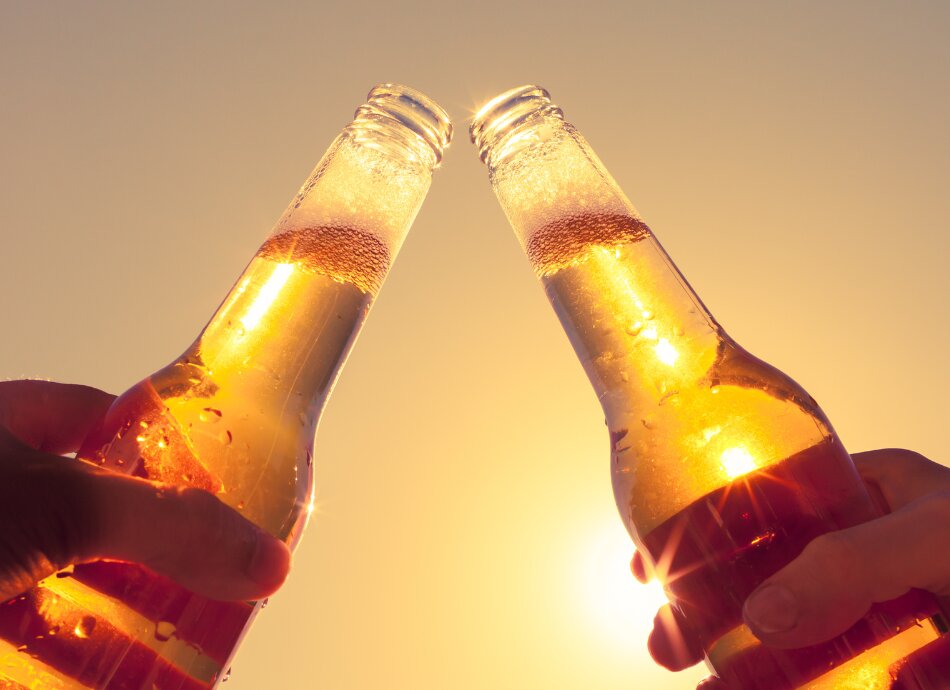Wishing everyone a safe and happy Christmas and New Year – Meri Kirihimete from the Healthify team.
How does alcohol affect sleep?
Key points about alcohol and sleep
- Some people have alcohol before bedtime thinking it will make them feel sleepy, however, it can have the opposite effect leading to a very poor night's sleep.
- Drinking alcohol can affect people with obstructive sleep apnoea, making the symptoms worse and leading to more frequent sleep apnoea episodes.
- To reduce the effects of alcohol on sleep, give your body enough time to metabolize alcohol before you sleep and stop drinking alcohol at least 4 hours before bedtime.
- Learn more about how alcohol affects sleep.

No, alcohol shouldn't be used to help you sleep. While alcohol may make you feel sleepy and help you fall asleep, it can disrupt the sleep cycle and decrease sleep quality especially if you drink a lot of alcohol.
- Alcohol is a central nervous system depressant that causes brain activity to slow down and can create the feeling of relaxation and sleepiness.
- Drinking alcohol disturbs your brain rhythms and stops you getting enough of the deep sleep you need to feel rested and refreshed in the morning.
- Being tired all the time makes life more difficult and can cause stress. People who drink alcohol regularly are at greater risk of developing insomnia over time.
- Even small amounts of alcohol can affect sleep (see below).
- Drinking to fall asleep can build-up your tolerance, making you feel like you need more alcohol each night to get the sedative effects.
The effects of alcohol on sleep depend mainly on the amount of alcohol and how quickly it's consumed. Even a small amount of alcohol can affect sleep.
A study compared sleep quality for people who consumed various amounts of alcohol:
- Low amounts of alcohol: Having fewer than 2 servings of alcohol per day for men or fewer than 1 serving per day for women decreased sleep quality by 9.3%.
- Moderate amounts of alcohol: Having 2 servings of alcohol per day for men or 1 serving per day for women decreased sleep quality by 24%.
- High amounts of alcohol: Having more than 2 servings of alcohol per day for men or more than 1 serving per day for women decreased sleep quality by 39.2%.
Binge drinking, which is having an excessive amount of alcohol in a short period of time, has been associated with trouble falling asleep, trouble staying asleep, disturbed sleep, sleeplessness and insomnia.
Since alcohol can cause disrupted sleep, it often leads to feeling excessively sleepy the following day. This can turn into a vicious cycle of using alcohol to fall asleep, then taking caffeine and other stimulants during the day to stay awake, and later having alcohol as a sedative to reduce the effects of the stimulants.
Drinking alcohol will affect people with obstructive sleep apnoea. While alcohol doesn't cause sleep apnoea, it will make it worse by increasing snoring, reducing sleep quality, and lowering oxygen levels in the blood, leading to more frequent sleep apnoea episodes.
- Obstructive sleep apnoea happens when the muscles in your airways relax and block your upper airways while you are asleep. When this happens, you decrease or stop breathing for a short time until your brain wakes you up to begin breathing again. Read more about obstructive sleep apnoea.
- Alcohol can affect your brain’s ability to sense and respond to your breathing changes with sleep apnoea. When your breathing pauses during a severe sleep apnoea episode, it causes carbon dioxide to build up in your blood. Usually, your brain senses this and tells you to wake up so that you can correct your breathing. But when you drink alcohol, your brain is less sensitive to carbon dioxide and your breathing is paused for much longer before sending the alarm to wake up and take a breath.
- Drinking alcohol will relax the muscles of your mouth and throat. This loss of muscle tone makes it more likely to block your upper airway.
- Alcohol also causes increased nasal congestion or stuffiness which can make it harder to breathe through your nose. Nasal congestion can put more pressure on your upper airway and make breathing problems worse with obstructive sleep apnoea.
- People with obstructive sleep apnoea have a greater risk of feeling drowsy which is dangerous while driving. Drinking alcohol can cause further drowsiness and make car accidents more likely.

Image credit: 123rf
Apps
References
- Alcohol and sleep(external link) Sleep Foundation, Australia
- Pietilä J, Helander E, Korhonen I, et al. Acute effect of alcohol intake on cardiovascular autonomic regulation during the first hours of sleep in a large real-world sample of Finnish employees – observational study JMIR Mental Health 2018;5(1):e23
- Alcohol and sleep apnea(external link) Sleep Foundation, Australia
Credits: Sandra Ponen, Healthify, Pharmacist
Reviewed by: Angela Lambie, Pharmacist, Auckland; Dr Roland Meyer, Specialist Physician, Respiratory and General Medicine
Last reviewed:





